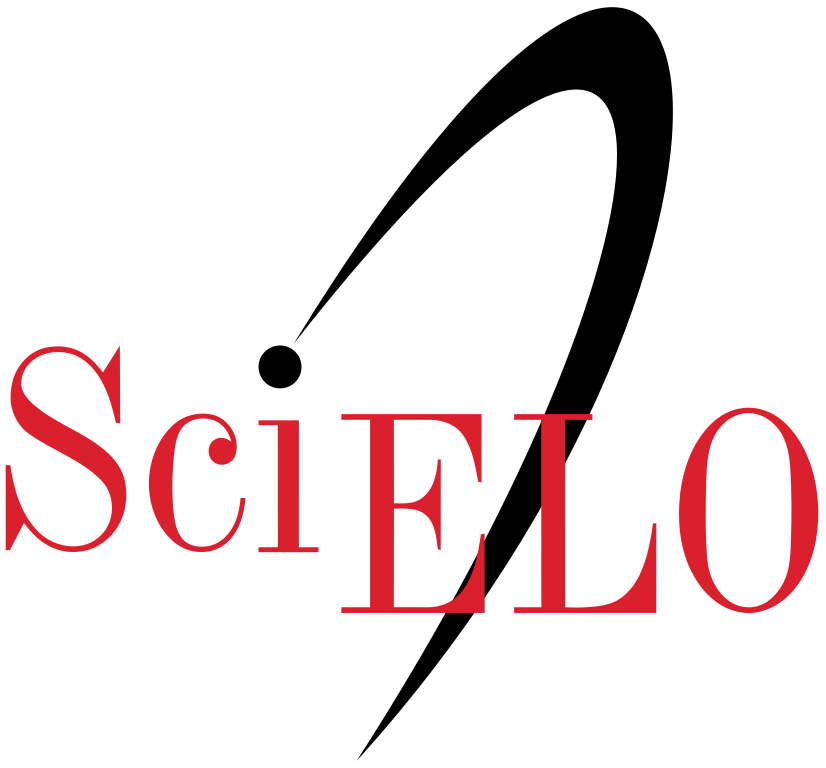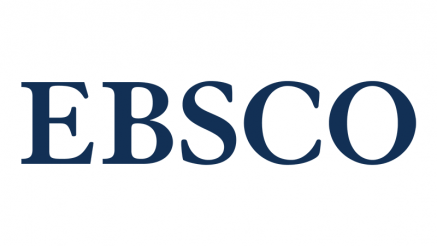Development of an Automatic Container and Sorter for Recyclable Material as a Circular Economy Strategy in the Educational Context
DOI:
https://doi.org/10.14482/inde.39.1.006.38Keywords:
Artificial intelligence, Automation, Sanitation, Sustainable developmentAbstract
The objective of this research was to characterize the recyclable solid waste produced at the University of the Amazon, and to develop an automatic container and classifier for this type of waste, to contribute through ICT to the process of environmental sustainability linked to the concept of circular economy in education. The defined methodology was divided into five phases that correspond to the knowledge of the solid waste management of the cafeteria users, characterization of solid waste, design and construction of the container, training of the artificial intelligence (AI) system, and internal beta-test. Test. Obtaining, as a result, a total generation of plastic waste per week of 66 Kg, which represents an approximate economic income of $ 138,000 COP. In addition, an automatic container and sorter, capable of recognizing and storing plastic bottles, was developed using an artificial neural network. In conclusion, the recycling of plastic waste within an educational institution contributes to environmental sustainability, in addition to the development of technologies such as the container and automatic sorter, they allow to optimize the selection and classification of recyclable elements, quickly and safely.
References
G. Michelini, R. N. Moraes, R. N. Cunha, J. Costa y A. R. Ometto, “From linear to circular economy: PSS conducting the transition”, Procedia CIRP, vol. 64, pp. 2-6, jun. 2017. https://doi.org/10.1016/j.procir.2017.03.012
J. Buchmann-Duck y K. F. Beazley, “An urgent call for circular economy advocates to acknowledge its limitations in conserving biodiversity”, Sci. Total Environ., vol. 727, p. 138602, jul. 2020. https://doi.org/10.1016/j.scitotenv.2020.138602
Z. Fu y J. Wang, “Current practices and future perspectives of microplastic pollution in freshwater ecosystems in China”, Sci. Total Environ., vol. 691, pp. 697-712, nov. 2019. https://doi.org/10.1016/j.scitotenv.2019.07.167
F. Wagner, J. R. Peeters, J. D. Keyzer, K. Janssens, J. R. Duflou y W. Dewulf, “Towards a more circular economy for WEEE plastics - Part A: Development of innovative recycling strategies”, J. Waste Manag., vol. 100, pp. 269-277, dic. 2019. https://doi.org/10.1016/j.wasman.2019.09.026
E. Uçar, M. A. Le Dain y I. Joly, “Digital technologies in circular economy transition: evidence from case studies”, Procedia CIRP, vol. 90, pp. 133-136, ag. 2020. https://doi.org/10.1016/j.procir.2020.01.058
M. Abdallah, M. Abu Talib, S. Feroz, Q. Nasir, H. Abdalla y B. Mahfood, “Artificial intelligence applications in solid waste management: a systematic research review”, J. Waste Manag., vol. 109, pp. 231-246, my. 2020. https://doi.org/10.1016/j.
wasman.2020.04.057
G. I. González Ordaz y J. G. Vargas Hernández, “La economía circular como factor de la responsabilidad social”, Economía Coyuntural, vol. 2, no. 3, pp. 105-130, jul. 2017.
C. H. Balboa C. y M. Domínguez Somonte, “Economía circular como marco para el ecodiseño: el modelo ECO-3”, Informador técnico, vol. 78, no. 1, pp. 82-90, en.-jun. 2014 [En línea]. Disponible en: https://dialnet.unirioja.es/descarga/
articulo/4881026.pdf
L. Sandoval, Evaluación de la gestión integral de residuos sólidos con énfasis en la disposición final en el municipio de Cobija Pando - Bolivia. Organización Panamericana de la Salud, 2004 [En línea]. Disponible en: https://1library.co/document/yjkd5m2q-evaluacion-gestion-integral-residuos-solidos-enfasis-disposicion-municipio.html
J. Tisza, M. Chauca y A. Castillo, “Learning methodology for education in electronic engineering electronic-devices based on the inductive method top-down”, Procedia Comput. Sci., vol. 172, pp. 729-734, jun. 2020. https://doi.org/10.1016/j.procs.2020.05.104
M. Ließ, “At the interface between domain knowledge and statistical sampling theory: conditional distribution-based sampling for environmental survey (CODIBAS)”, Catena, vol. 187, p. 104423, abr. 2020. https://doi.org/10.1016/j.catena.2019.104423
M. Wei-Lung, C. Wei-Chun, W. Chien-Tsung y L. Yu-Hao , “Recycling waste classification using optimized convolutional neural network”, Resour. Conserv. Recycl., vol. 164, p. 105132, en. 2021. https://doi.org/10.1016/j.resconrec.2020.105132
B. S. Sathish, P. Ganesan, L. M. I. Leo Joseph, K. Palani y R. Murugesan, “A two-level approach to color space-based image segmentation using genetic algorithm and feed-forward neural network”, Adv. Intell. Syst. Comput., vol. 1133, pp. 67-78, ag. 2021. https://doi.org/10.1007/978-981-15-3514-7_6
O. Owojori, J. N. Edokpayi, R. Mulaudzi y J. O. Odiyo, “Characterisation, recovery and recycling potential of solid waste in a university of a developing economy”, Sustainability, vol. 12, no. 12, pp. 1-17, jun. 2020. https://doi.org/10.3390/su12125111
Y. Chen, A. K. Awasthi, F. Wei, Q. Tan y J. Li, “Single-use plastics: production, usage, disposal, and adverse impacts”, Sci. Total Environ., vol. 752, p. 141772, en. 2021. https://doi.org/10.1016/j.scitotenv.2020.141772
M. Saleh, M. Yalvac y M. A. Mazmanci, “Characterization of solid waste in Mersin University: main campus and development of solid waste management plan”,Fresenius Environ. Bull., vol. 29, no. 8, pp. 6386-6392, my. 2020.
Y. Hao, L. O. Wang, X. S. Chen y L. Wang, “The determinants of waste-sorting intention and behavior among Chinese undergraduate students: a case study in Beijing”, Singapore Economic Review, vol. 65, no. 3, pp. 627-652, my. 2020. https://
doi.org/10.1142/S0217590817410077
A. S. Vieira, R. A. Stewart, R. Lamberts y C. D. Beal, “Renewable energy and energy conservation area policy (REECAP) framework: a novel methodology for bottom-up and top-down principles integration”, Energy Strategy Rev., vol. 32, pp. 2-17, nov. 2020. https://doi.org/10.1016/j.esr.2020.100544
F. B. Yahya, C. J. Lukas y B. H. Calhoun, “A top-down approach to building battery-less self-powered systems for the internet-of-things”, J. Low Power Electron. Appl., vol. 8, pp. 21-34, jun. 2018. https://doi.org/10.3390/jlpea8020021
J. J. Kim, “Action-based solar education in architecture”, Sustain. Cities Soc. , vol. 60, pp. 102-185, sept. 2020. https://doi.org/10.1016/j.scs.2020.102185
Q. Jiang, T. Izumi, H. Yoshida, D. Dilixiati, N. Leeabai, S. Suzuki y F. Takahashi, “The effect of recycling bin design on PET bottle collection performance”, J. Waste Manag., vol. 95, pp. 32-42, jul. 2019. https://doi.org/10.1016/j.wasman.2019.05.054
K. H. Yu, Y. Zhang, D. Li, C. E. Montenegro Marin y P. M. Kumar, “Environmental planning based on reduce, reuse, recycle and recover using artificial intelligence”,Environ. Impact Assess. Rev., vol. 86, pp. 106-492, en. 2021. https://doi.org/10.1016/j.eiar.2020.106492
Y. Wang, Y. Gu, Y. Wu, G. Zhou, H. Wang, H. Han y T. Chang, “Performance simulation and policy optimization of waste polyethylene terephthalate bottle recycling system in China”, Resour. Conserv. Recycl., vol. 162, pp. 105-114, nov. 2020. https://doi.org/10.1016/j.resconrec.2020.105014
G. Coskuner, M. S. Jassim, M. Zontul y S. Karateke, “Application of artificial intelligence neural network modeling to predict the generation of domestic, commercial and construction wastes”, Waste Manag. Res., pp. 1-12, jun. 2020.
https://doi.org/10.1177/0734242X20935181
B. Molina Serrano, N. González-Cancelas y F. Soler-Flores, “Inteligencia artificial para determinar si el empleo de gas natural licuado en el short sea shipping es una apuesta social”, Ing. Desarro., vol. 36, no. 2, pp. 418-436, jul. 2018. https://doi.org/10.14482/inde.36.2.10458









